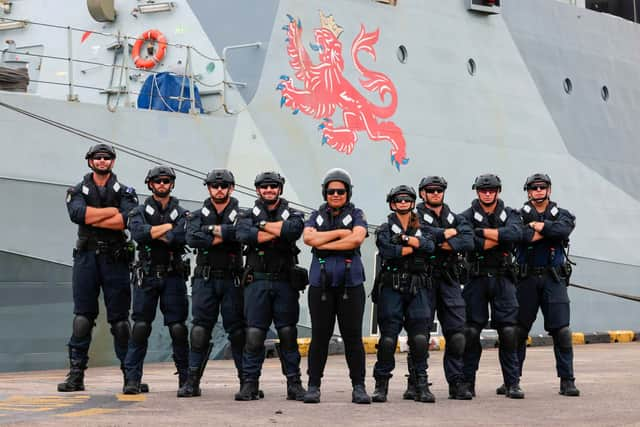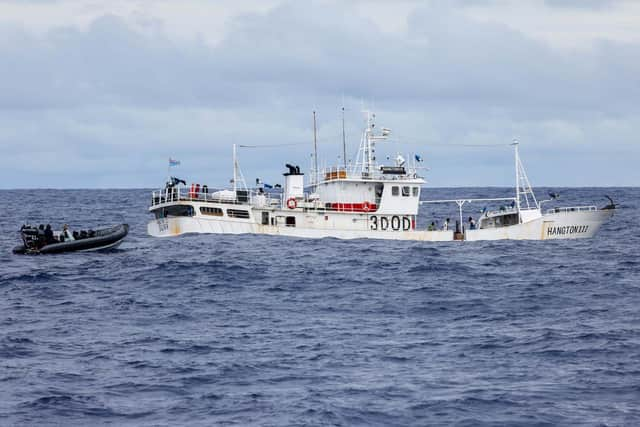Royal Navy: HMS Tamar joins Fiji authorities in New Zealand waters to protect nation from illegal fishing
and live on Freeview channel 276
Offshore patrol vessel HMS Tamar has joined forces with security forces in Fiji and the New Zealand navy to tackle illegal fishing in the South Pacific. The Royal Navy said illicit fishing deprives Pacific nations of more than £200m a year.
Not only does the practice erode marine life stocks, but it also impacts livelihoods and communities reliant on the ocean for food and income. Fisheries Officer Arieta Tunidau, from Fiji’s Ministry of Fisheries, said: “Our partnership with the Royal Navy and Royal New Zealand Navy allows us to be at the forefront of fishing operations in our Exclusive Economic Zone.


Advertisement
Hide AdAdvertisement
Hide Ad“Together, we’re ensuring surveillance and patrols are undertaken to address and deter illegal fishing.” The sailors work with the Fijian Ministry of Fisheries and the New Zealand Navy’s Deployable Boarding Team is focused on preserving the environment.
They are tasked with operating in Fiji’s vast Exclusive Economic Zone (EEZ). This covers an area of the Pacific spanning 1.29 million square kilometres, or five times larger than the United Kingdom. HMS Tamar is also on the lookout for poor crew welfare conditions aboard ships, people polluting the environment and poaching sharks in the lucrative fin trade.
Illegal, Unreported, and Unregulated Fishing (IUUF) is a direct contravention of the UN Convention on the Law of the Sea. Unlicensed fishing in another country’s territorial waters or EEZ is also illegal, which is why Fijian authorities are stepping up their policing activities. HMS Tamar conducted training with the New Zealand navy off the coast of Auckland in preparation for the operation.


Lieutenant Jack Walters RNZN, the officer in charge of the boarding team embarked on HMS Tamar, said: “This has been an awesome opportunity to represent the Royal New Zealand Navy and Aotearoa [the Maori name for New Zealand], working alongside the Royal Navy and Fijian Ministry of Fisheries to counter illegal fishing in the region. Our combined efforts have strengthened deterrence and enforcement, directly benefitting the prosperity of our Pacific Island partners.”
Advertisement
Hide AdAdvertisement
Hide AdThe patrol vessel’s Commanding Officer, Commander Tom Gell, said: “This is a real demonstration of multi-agency and multi-national cooperation and partnerships in action. Fiji, New Zealand and the United Kingdom have come together for this vitally important mission to minimise the far-reaching and devastating impact of illegal fishing; I could not be prouder of HMS Tamar’s role in this cohesive team.”
Lieutenant Colonel Sophie Waters, the UK’s Defence Adviser to Fiji, Tonga and Vanuatu, added: “2,200 Fijians currently serve in the UK’s Armed Forces and working here in Fiji alongside its navy and fisheries protection team, with colleagues from New Zealand, on Counter-IUUF patrols is not only hugely rewarding, but vital.”
HMS Tamar is currently in Tonga and will be back in Fijian waters once her visit is complete.
Comment Guidelines
National World encourages reader discussion on our stories. User feedback, insights and back-and-forth exchanges add a rich layer of context to reporting. Please review our Community Guidelines before commenting.